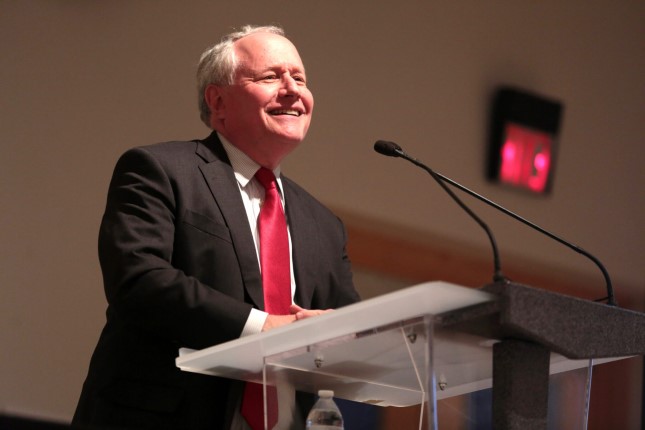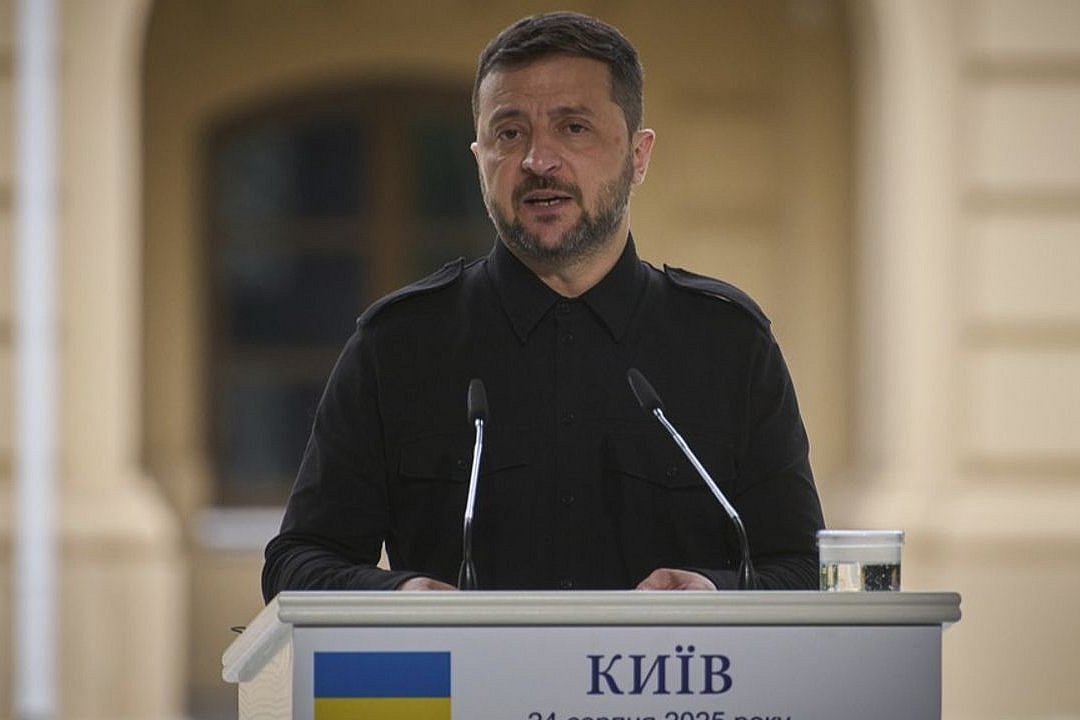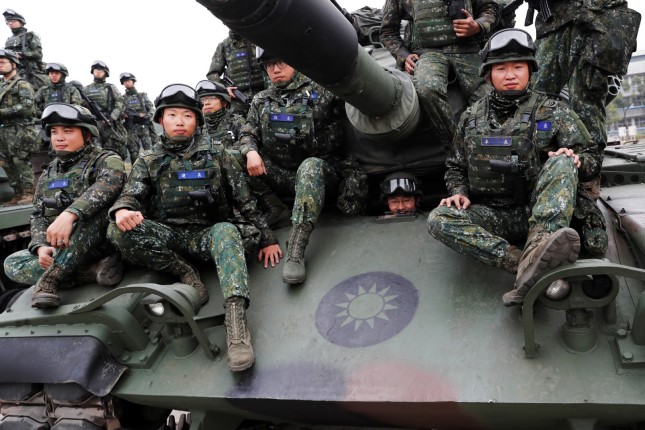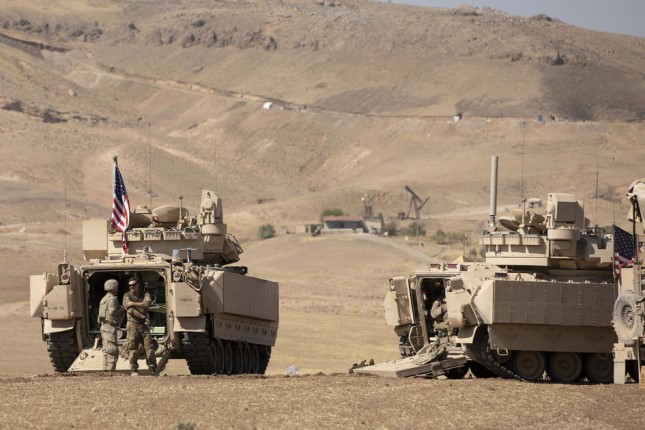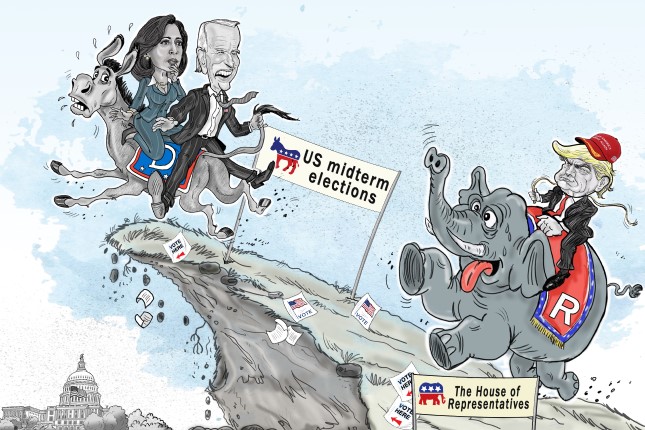The Bill Kristol-led group “Republicans for Ukraine” has released a TV ad to help drum up GOP support for Washington’s proxy war against Russia, and it’s surprisingly honest about what this war is really about: advancing U.S. strategic interests using Ukrainians as sacrificial pawns.
Here’s a transcript: “When America arms Ukraine, we get a lot for a little. Putin is an enemy of America. We’ve used 5% of our defense budget to arm Ukraine, and with it, they’ve destroyed 50% of Putin’s Army. We’ve done all this by sending weapons from storage, not our troops. The more Ukraine weakens Russia, the more it also weakens Russia’s closest ally, China. America needs to stand strong against our enemies, that’s why Republicans in Congress must continue to support Ukraine.”
“Republicans for Ukraine” was launched last month by “Defending Democracy Together,” another Kristol-led narrative management operation which is funded by oligarchs such as Pierre Omidyar.
Kristol, who as a neoconservative thought leader played a pivotal role in pushing for the 2003 invasion of Iraq, tweeted on Saturday that the ad “will air on the Sunday shows tomorrow in DC.”
One of the dumbest things the empire asks us to believe is that this war simultaneously (A) was completely unprovoked and (B) just coincidentally happens to massively advance the strategic interests of the government accused of provoking it.
From the moment Russia invaded Ukraine in February 2022 Westerners were aggressively hammered over and over and over again by the mass media with the uniform propaganda message that this was an “unprovoked invasion.”
But ever since then they’ve also been receiving these peculiar messages from U.S. empire managers and spinmeisters that this war is helping the United States crush its geopolitical enemies and advance its interests abroad.
This bizarre two-step occurs because the U.S.-centralized empire needs to convey two self-evidently contradictory messages to the public at all times:
- that the U.S. is an innocent little flower who just wants to help its good friends the Ukrainians protect their democracy from the murderous Russians who invaded solely because they are evil and hate freedom, and
- that it’s in the American interest to continue this war.
The second point is required because the message that the U.S. is merely an innocent passive witness to the violence in Ukraine necessarily causes certain political factions to ask, “Okay, so what are we doing there then? Why are we pouring all this money into something that has nothing to do with us?”
So another narrative is required to explain that backing this proxy war also just so happens to be a massive boon to U.S. strategic interests abroad while creating American jobs manufacturing weapons at home.
And of course this war advances U.S. strategic interests. Of course it does. Only an idiot would believe the U.S. is pouring weapons into another country because it loves the people who live there and wants them to be free, and that it is only by pure coincidence that this happens to kill a lot of Russians, bolster NATO, and advance U.S. energy interests in Europe.
It doesn’t benefit normal Americans at home, but it absolutely does serve the interests of the globe-spanning empire that’s centralized around Washington. That’s why the empire deliberately provoked it.
Empire managers were openly discussing the ways a war in Ukraine would directly benefit the U.S. empire long before the invasion.
In 2019 a Pentagon-funded Rand Corporation paper titled “Extending Russia —Competing from Advantageous Ground” detailed how the empire can use proxy warfare, economic warfare and other Cold War tactics to push its longtime geopolitical foe to the brink without costing American lives or sparking a nuclear conflict.
The U.S. Army-commissioned paper mentioned Ukraine hundreds of times, and explicitly discussed how a war there could be used to promote sanctions against Moscow and attack Russia’s energy interests in Europe.
In December of 2021 John Deni of NATO propaganda firm The Atlantic Council authored a piece for The Wall Street Journal, “The Strategic Case for Risking War in Ukraine,” subtitled “An invasion would be a diplomatic, economic and military mistake for Putin. Let him make it if he must.”
Deni argued that “there are good strategic reasons for the West to stake out a hard-line approach” against Moscow and refuse to negotiate or back down over Ukraine, because if doing so provokes Russia to invade it would “forge an even stronger anti-Russian consensus across Europe,” “result in another round of more debilitating economic sanctions that would further weaken Russia’s economy” and “sap the strength and morale of Russia’s military while undercutting Mr. Putin’s domestic popularity and reducing Russia’s soft power globally.”
The minds on the inside of the empire were talking about how this war would benefit the U.S. before the invasion, and they’ve been talking about how much it benefits the U.S. ever since.
As The Washington Post’s David Ignatius put it this past July: “these 18 months of war have been a strategic windfall, at relatively low cost (other than for the Ukrainians). The West’s most reckless antagonist has been rocked. NATO has grown much stronger with the additions of Sweden and Finland. Germany has weaned itself from dependence on Russian energy and, in many ways, rediscovered its sense of values. NATO squabbles make headlines, but overall, this has been a triumphal summer for the alliance.”
The managers of the empire are getting everything they want out of this war. In public they rend their garments and cry crocodile tears and call it a terrible criminal atrocity, but every now and then they look at the camera and flash it a quick Fleabag-style grin.
They knew exactly what they were doing when they provoked this war, and they know exactly what they’re doing by keeping it going.
And they’re loving every minute of it.
Photo: Bill Kristol in 2011 © Gage Skidmore / Wikimedia Commons / CC BY-SA 2.0.
Source: Consortium News.
